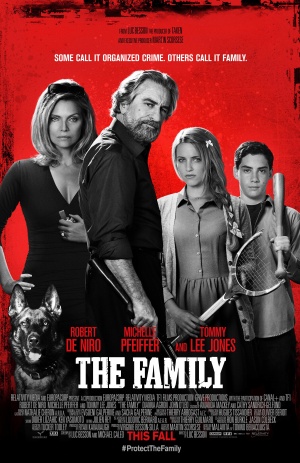By JAKE KRING-SCHREIFELS
 There used to be a time when a Robert De Niro movie was an event. He made a picture only once every year, sometimes two, and filled those gaps with anticipation and the belief that fewer projects meant the production of high quality films. Right now he has six movies slotted in 2013 and over the past few years has credits in flimsy flicks like New Year’s Eve, Being Flynn and The Big Wedding. De Niro saturation is reaching its highest marks, and with few outliers, like Silver Linings Playbook, the quality of his films has been inversely proportional.
There used to be a time when a Robert De Niro movie was an event. He made a picture only once every year, sometimes two, and filled those gaps with anticipation and the belief that fewer projects meant the production of high quality films. Right now he has six movies slotted in 2013 and over the past few years has credits in flimsy flicks like New Year’s Eve, Being Flynn and The Big Wedding. De Niro saturation is reaching its highest marks, and with few outliers, like Silver Linings Playbook, the quality of his films has been inversely proportional.
That is possibly one reason why director Luc Besson (Leon The Professional) thought his latest feature The Family should bring DeNiro back to his bread and butter, letting him portray another former mobster. This time his name is Giovanni, and he and his “Soprano”-like family are herded into Normandy under the witness protection program after Giovanni helped turn in some former associates to authorities back in New York. Now under the watch of special agent Robert Stansfield (Tommy Lee Jones, Lincoln), the brooding and meddling Long Island family must cozy up to their pastoral French village. Like that will ever happen.
Giovanni, now under the name Fred Blake, brings along his thick-accented wife Maggie (Michelle Pfeiffer, People Like Us) and two kids, Belle (Diana Agron of “Glee” fame) and Warren (John D’Leo, Wanderlust), who are unenthused about immersing themselves into their polite surroundings. Their bruised and battered conditioning quickly emerges. Maggie goes grocery shopping and doesn’t like her cashier so she lights a bomb and blows fruits and vegetables to smithereens. Belle is courted by some perverted French boys, whose ultimately harmless seduction earns one boy a tennis racquet to the head. Warren, meanwhile, begins scheming his way through his new school’s hallways, making allegiances and scamming foes of money. This is not a subtle family.
Fred is also prone to excessive acts of violence, some involving a torturous scene with an unfortunate plumber. Apparently it is not Stansfield’s job to reprimand any crime this family commits; he, along with a two-man surveillance team, must keep them safe. But Stansfield must also find something for Fred to occupy his time with in order to keep the community from questioning his presence. He suggests writing, which quickly spawns Fred’s imaginative, and in some ways cathartic, memoirs and a few creative careers about which to brag to inquiring neighbors. The family throws a block party to seem “inviting” and Fred recounts a New York barbecue, through flashback, with his mobster friends in the same vein that he envisions slamming a frustrating French neighbor’s face into his grill.
I’m not sure where the meta-levels are, or why there’s not any talk of resemblance after the screening. The Family is based off Tonino Benacquista’s novel Badfellas. That was the original title of the film, and it may have been more apt.







































































































































































































